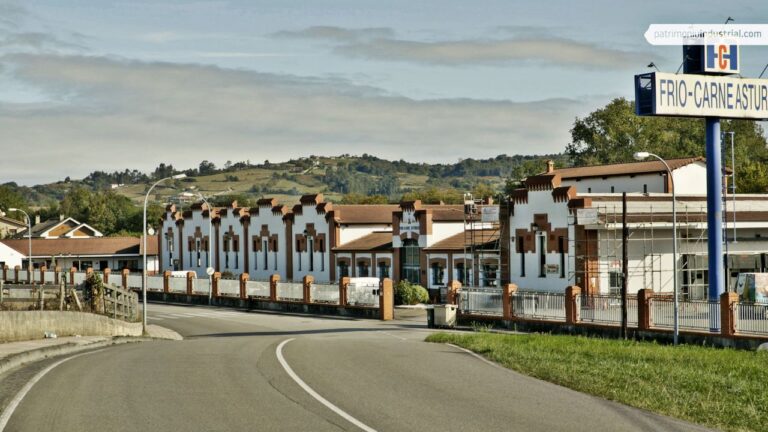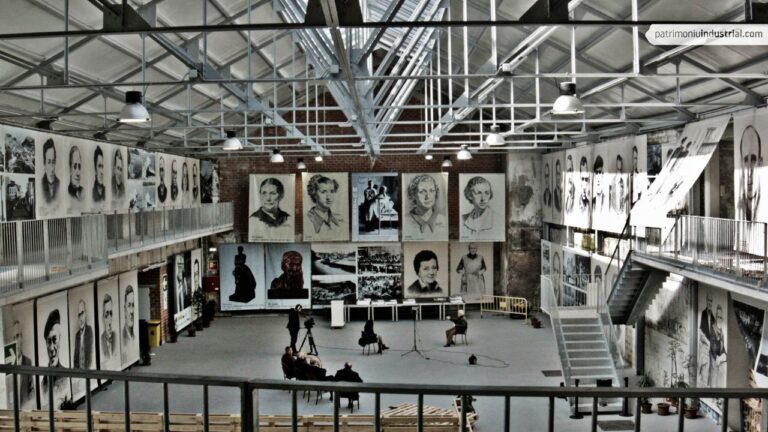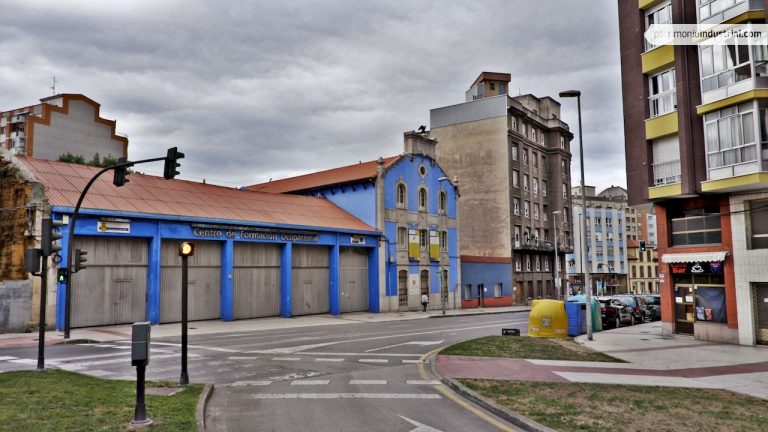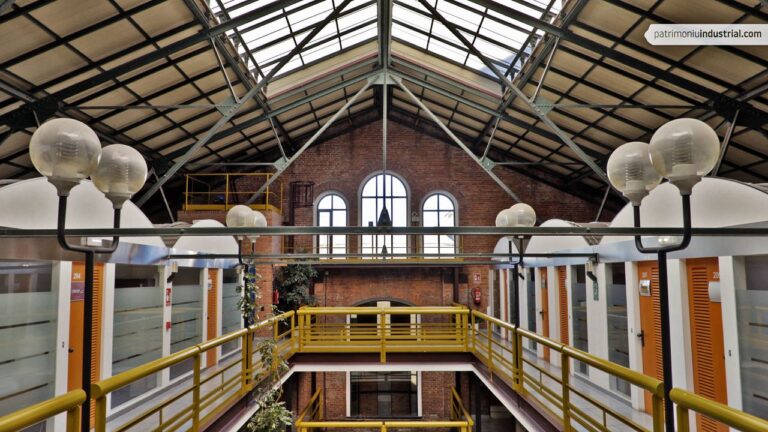
by Carolina Castañeda López
B.A. and Ph.D. degrees in Architecture (Polytechnic University of Madrid and University of La Coruña). Collaborates with INCUNA (Asturias’ Industrial Heritage Association) and TICCIH-Spain (The International Committee for the Conservation of the Industrial Heritage).
Industrialization in Asturias developed from strong extractive and productive foundations, encouraged by a rich and diverse body of companies from different industrial sectors.
For over two centuries Asturias fostered the development of a number of industries, quite diverse as far as their location, activity and structural type. This diversity was reinforced by the region’s favourable land and water characteristics, the advancement of transportation and migration movements, all of which determined the shape of the Asturian industrial landscape.
From the late eighteenth century onwards, the wide range of industries in the area have left behind some unique instances of industrial heritage, such as the Gijón tobacco factory, from the middle of the nineteenth century. Along with the La Vega weapons factory, these are two worthy examples of the transformation of former convents into industrial buildings – a common occurrence in many Spanish towns.
The food and agriculture sectors were the main employers of female workers in the region, for example at the aforementioned Gijón tobacco factory and also within the large cannery industry established in all the main fishing ports. Alcoholic drinks such as beer and sparkling apple cider were also industrially produced, and became known overseas due to Asturian migrants.
Everyday objects and construction materials tended to be produced in areas with a certain industrial tradition. Locations included San Claudio, known for its kitchenware and Avilés for its glass. As seaports expanded to accommodate the shipping of local production, naval construction also did. The tradition of small shipbuilding operations gave way to the first large shipyards at the beginning of the twentieth century. The closing of Naval Gijón (Gijón Shipbuilding Company) in 2009 marked the end of an era compounded by workers’ turmoil that is preserved in the urban art of the neighbourhood.
ARIAS GONZÁLEZ, L.; MATO DÍAZ, A., Liadoras, cigarreras y pitilleras: la Fábrica de Tabacos de Gijón (1837-2002), Dirección de Comunicación de Altadis, 2005.
CASTAÑEDA LÓPEZ, C., “Tratamiento de un espacio patrimonial industrial: El caso de la Fábrica de Tabacos de Gijón” en VV. AA., La experiencia del reuso. Propuestas para la Documentación, Conservación y Reutilización del Patrimonio Arquitectónico. Criterio y método en época de crisis. Ingeniería y técnica al servicio de la restauración, Mora Alonso-Muñoyerro, Rueda Márquez de la Plata y Cruz Franco (eds.), 2013.
CASTAÑEDA LÓPEZ, C., Fábricas de tabacos en España. Arquitectura industrial y paisajes urbanos, CICEES, 2018.
QUIRÓS LINARES, F, “Notas sobre las fábricas azucareras en Asturias (1893-1957)” en Ería, 1982.
SUÁREZ ANTUÑA, F. “La azucarera de Lieres (Asturias). Apuntes para una Geografía Histórica”, en ÁLVAREZ ARECES, M.A. (Coord.), Patrimonio industrial agroalimentario: testimonios cotidianos del diálogo intercultural, Incuna, CICEES, 2009.
TIELVE GARCÍA, N., “Artes industriales y vidriería. La Compagnie de Saint-Gobain en España: de las manufacturas reales a la modernidad arquitectónica de Cristalería Española”, Ars Longa, 2014.
TIELVE GARCÍA, N., “Patrimonio y producción: de las fábricas de tabacos a las industrias culturales”, Abaco, 2018.






Recent Comments